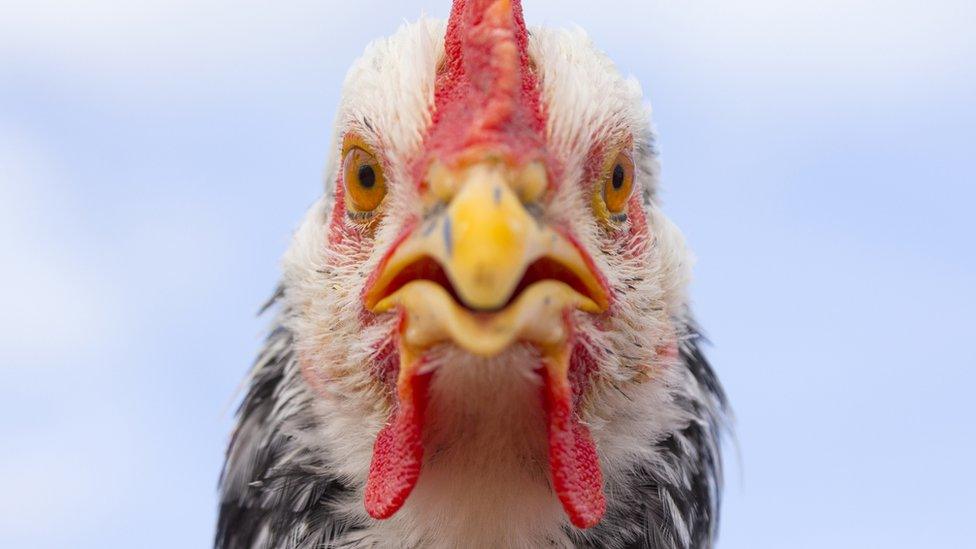Bird flu: Poultry farm to keep birds inside despite end of order
- Published
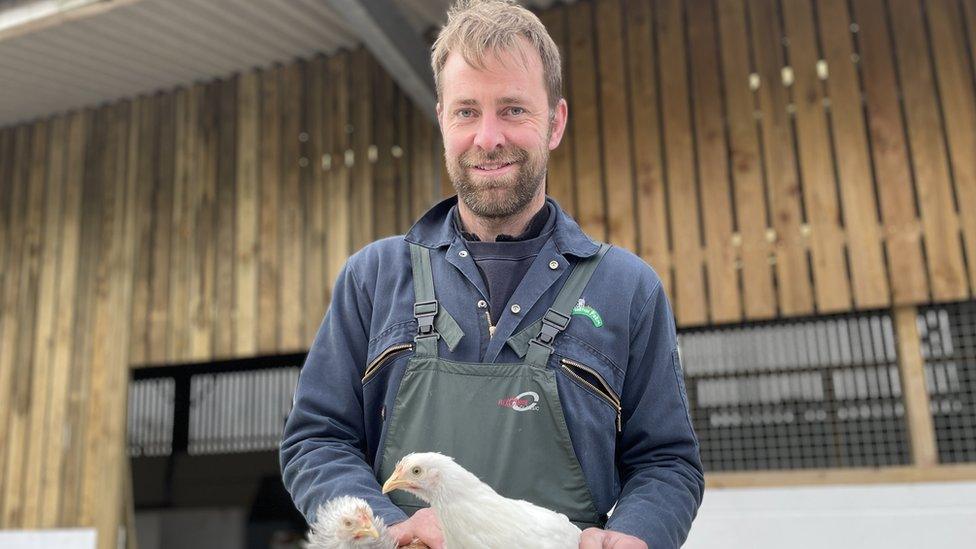
Egg farmer Tom Beckingham said it had been an "anxious time" for business
A poultry farmer in Derbyshire has said he will continue to keep his hens indoors over fears they are still at high-risk of catching bird flu.
The government has lifted a requirement for owners to keep birds inside to reduce the spread of avian influenza.
Free-range poultry had been subject to a national housing order since November to combat rising cases.
Tom Beckingham, of Little Morton Farm in North Wingfield, Chesterfield, said: "I deem the risk to still be there."
In some areas - including a 3km designated protection zone around Bakewell - restrictions remain in place.
Free-range poultry has been ordered to be brought inside in these areas to avoid them coming into contact with infected wild birds.
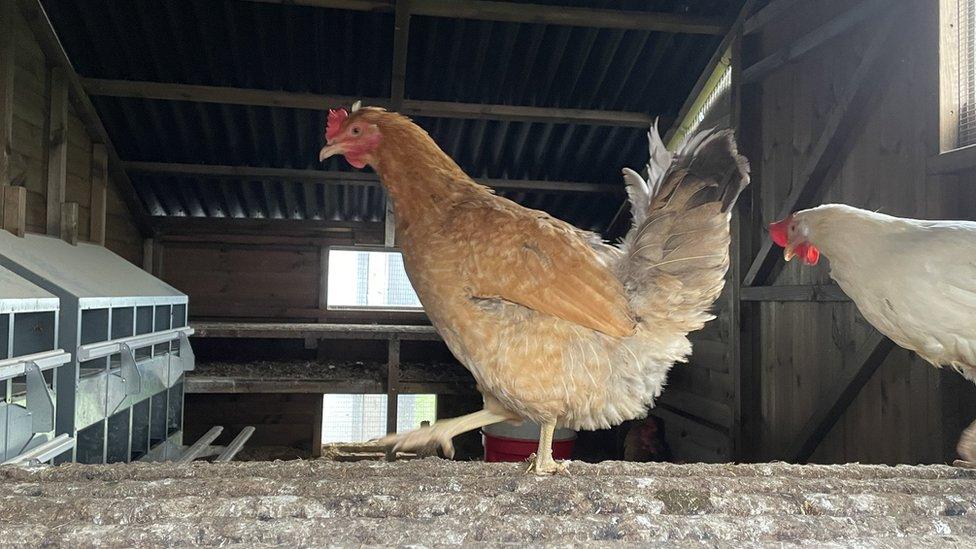
Hens at Little Morton Farm will continue to be kept inside
The arrival of the H5N1 virus prompted Mr Beckingham, a poultry farmer of 20 years, to reduce the amount of egg-laying flock on his farm as he was uncomfortable with keeping birds housed.
He says the virus has had a "decimating effect" on business.
"Even though the flockdown has been lifted there are still a number of measures that need to be in place to keep birds safe," said Mr Beckingham.
"We will keep our birds in our protected cover areas and keep our biosecurity very high. We will be planning to [let some birds out] later on this spring.
"[If one of our birds contracted the virus] the Animal Protection Agency would take our flock and humanely cull them to protect other birds in the area. That would be the end of our business from a poultry perspective."
Prices for free-range eggs have increased in the past year due to shortages driven partly by bird flu, but mainly due to farmers quitting after receiving low offers from retailers, according to the British Free-Range Egg Producers Association (BFREPA).
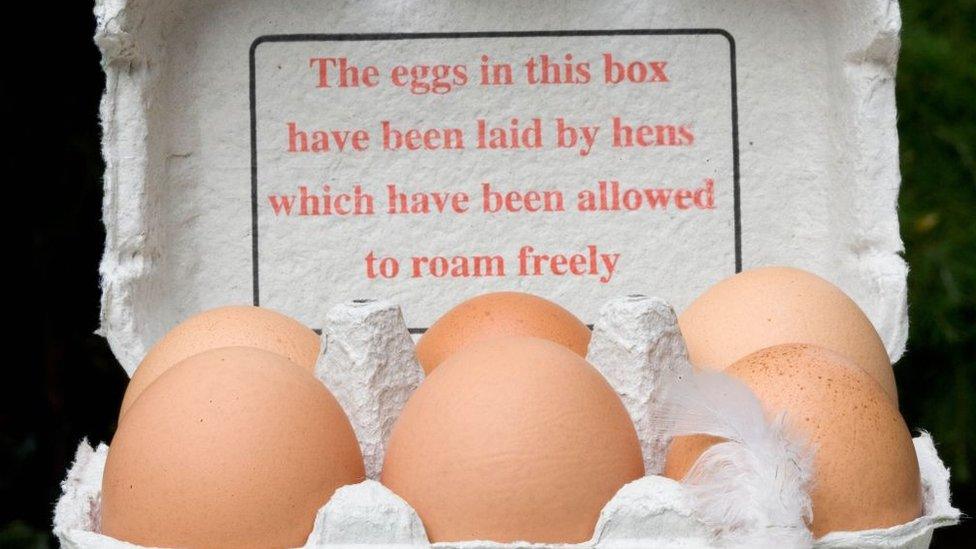
Free-range egg prices have increased over the past 12 months
Meanwhile, Patrick Lynn, council member of BFREPA and an egg farmer in Southwell, Nottinghamshire, said the industry "was starting to see signs of recovery".
"Some looked at the overall picture [in 2022] and decided it wasn't worth producing eggs and I don't blame them," he said.
"Prices have come to a point where they're starting to cover the cost of production a lot better, as well as covering the risk of producing eggs in this environment with all the bird flu about.
"We're starting to see of a return of people refilling their sheds which had been left empty last year."
Last year saw the biggest ever outbreak of bird flu in the UK and the world, with four million farm birds culled.
Dr Christine Middlemiss, the UK's chief veterinary officer said: "The unprecedented nature of this outbreak has proven it's more important than ever for bird keepers to remain vigilant for signs of disease."

Follow BBC East Midlands on Facebook, external, on Twitter, external, or on Instagram, external. Send your story ideas to eastmidsnews@bbc.co.uk, external.
Related topics
- Published18 April 2023
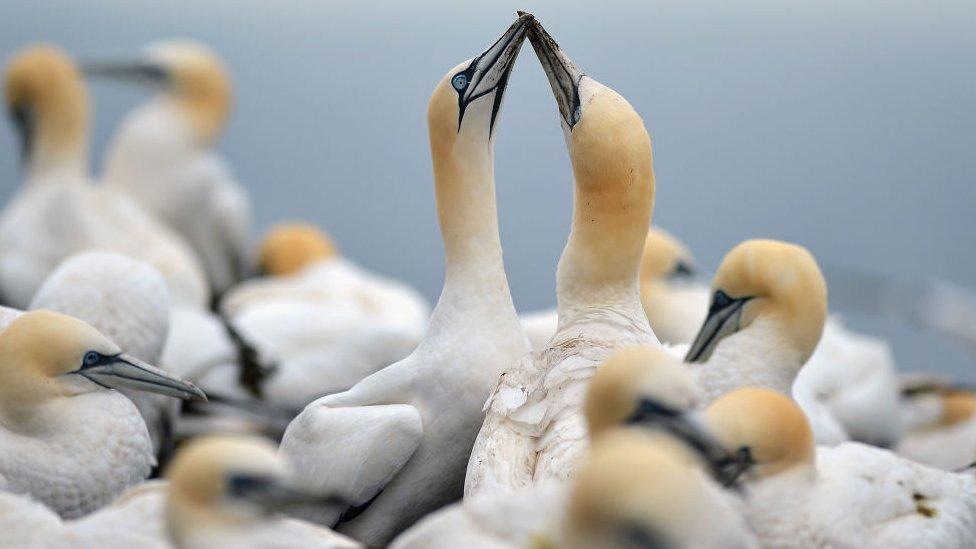
- Published25 February 2023
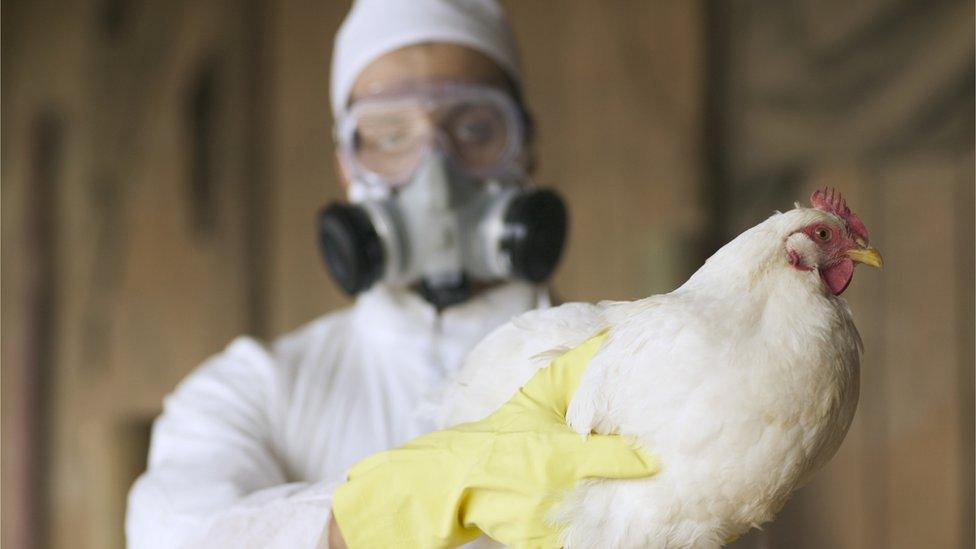
- Published1 April 2022
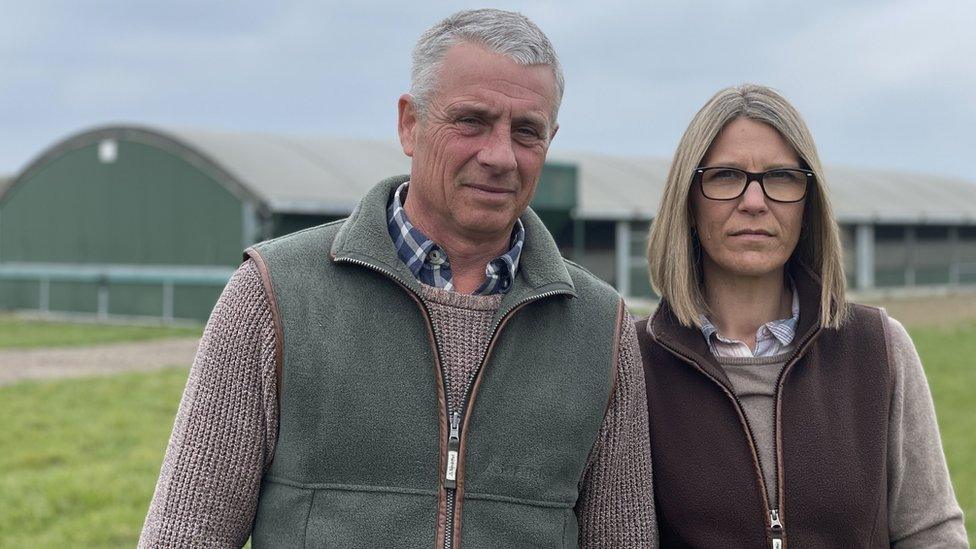
- Published18 June 2024
